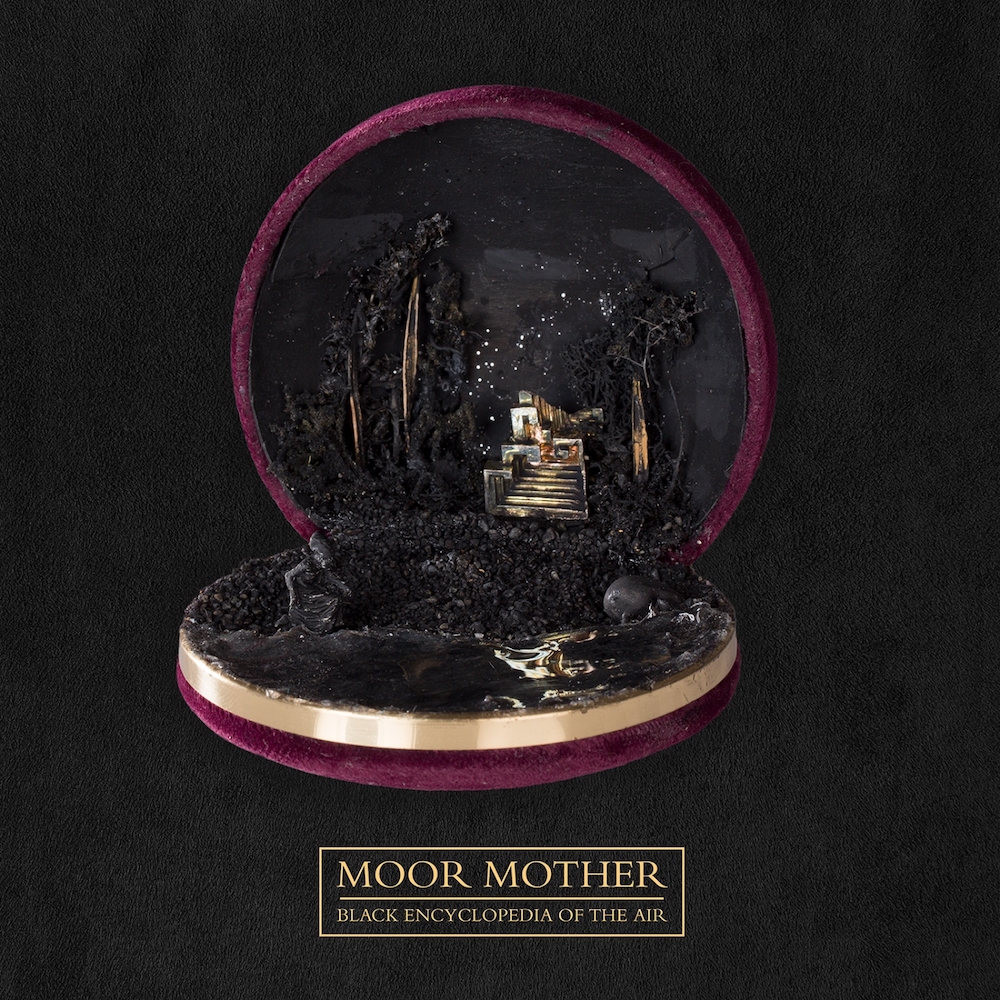So, sometimes we all just have to sit back, shut the fuck up, and listen (and read).
We are never gong to make the world a better place by vying for attention on social media with little black squares unless we step aside and give a platform and honour the agency of others.
We will always be in a cycle of cultural imperialism that proudly proclaims white supremacy as natural unless we acknowledge the privileges we possess built on the broken backs of others.
We will perpetually reproduce the conditions of power unless we listen to those voices that rarely come through.
As a first step, we need to take time to listen.
As Moor Mother, Camae Ayewa has been releasing challenging, twisted and Afrofuturist hip-hop since 2016’s Fetish Bones, the debut album which announced her as an artist worthy of your attention. Her incendiary live shows – wear earplugs, pals – take the Moor Mother experience up another level, with few artists able to reach, let alone sustain, her sheer vitriolic and life affirming intensity. Ayewa really means it. In a genre stifled with a limited range of personality types and biographies that people want to perceive as ‘authentic’, Moor Mother’s intellectualised sonic assault is nothing short of bliss-inducing and intellectually liberating.
Black Encyclopedia of the Air is a tightly wound coil of political and spiritual messaging that doesn’t forget to be entertaining at the same time. Yes, it’s still experimental, but, unlike much of Moor Mother’s output, it also pays significant lip service to the musical culture that she is most often aligned with – namely hip-hop. Her previous music has exposed the folly of the ideas of genre, labels and creative restrictions, but on this record the beats, the collaborations, and the cheeky nod to Missy Elliott on “Rogue Waves” all combine to make this Ayewa’s most hip-hop record.
Opener “Temporal Control of Light Echoes” is Moor Mother at her most sinister, seething, and dissonant. Rather than being a taster of things to come on the album as a whole, it acts like a prologue bridging her previous records to this. The dystopian alternative reality Confederate landscape that underpins much of the narrative of the album is highlighted in “Mangrove”, a collaboration with Elucid and Antonia Gabriela that places agitprop rapping over distended and disrupted jazzy R&B keyboard lines that ebb and flow in an achronological, chaotic manner. This is ahistorical storytelling in the sense that these are merely tales of power and oppression, of opposition and hegemonic ideological embodiment of abusive physicality, as it has always been. Music as memory. Music as learning.
London boy Brother May takes centre stage on “Race Function Limited”, highlighting the global nature of the need to unite and make audible the conscious voices of the struggle against constructed social imbalances. To paraphrase bell hooks, terrorist regimes use isolation to break the people’s spirits, and nationalistic late-capitalist indoctrination is perhaps the pinnacle of innate division of humans as we search for scapegoats that are mediated at us. Pink Siifu, Maasai, and BFLY, amongst others, feature to make the record a rounded exploration of a range of voices and perspectives; united by righteous intelligent indignation at the state of things.
While rooted in hip hop, there are still plenty of sonic excursions here that emphasise these points view, particularly in its later stages. “Zami” revisits Moor Mother’s love of noise, while “Clock Fight” uses jazz inflections with West African percussion to delirious effect. “Tarot” is a cosmological, Sun Ra-esque highlight, with floating voices coming in and out of focus, recounting tales of “blackface democracy / Slave house Senate” with an intonation that borders on ennui – or perhaps the fatigue that comes with the observation of the inevitable.
Black Encyclopedia of the Air is a constantly shifting body of work, deliberately lacking in musical structure while maintaining a strong focus on the subject matter of hegemonic power. Ayewa’s voice is often stretched, placing it as an out of body narrator, a time travelling signifier in the middle of divergent forces of agency and subordination.
This is a great and important record. Just listen.


